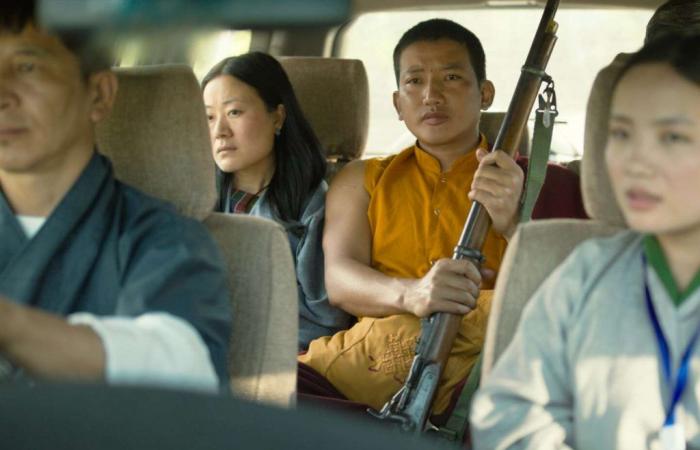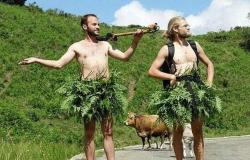THE OPINION OF THE “WORLD” – WHY NOT
To those who are dragging their feet to go to the polls, on Sunday June 30 and July 7, for the legislative elections, The Monk and the Gun, by Pawo Choyning Dorji, will give neither right nor wrong. But this fiction from the end of the world, which comes out four days before the first round, sends us distant and burlesque signals of a democracy in its infancy. As if to relearn it for us?
By drawing inspiration from reality, the director, also author of The School at the End of the World (2019), recounts nothing more or less the organization of the very first vote – “white elections”, like a rehearsal – organized in 2006 in Bhutan, a small kingdom wedged between China and the Himalayan range. Long isolated from the rest of the world, this Buddhist country is also distinguished by its policy of responsible growth, guided by the concept of “gross national happiness”.
The king (who we will not see) has just abdicated: the time has come, he thinks, to give the people the ability to choose their representatives. The news does not only make people happy: cronyism sets in, a father campaigns a little too visibly, and friendships become estranged.
Choice between three parties
Some replies seem to have been cut for French news (and the cartoons of the satirical press), the day after Emmanuel Macron’s choice to dissolve the National Assembly, Sunday June 9. “I heard we had to choose a new leader”, says a character. But “we already have Her Majesty”sighs another. “Our king gives us this gift, we must learn to appreciate it”, explains the elections official, who came specially to encourage people to register on the electoral lists. Some fear a battle of ragpickers, “like in India, where leaders throw chairs at each other”. For his part, a well-respected monk sets out in search of a weapon…
On the day of the “blank vote”, the president of the office explains the rules. Participants can choose between three parties (definitely): the Blues defend freedom and equality; the Reds, industrial development; the Yellows, environmental protection. Future voters learn to divide into small groups and shout at each other, to defend their camps…
The picture acts as a caricature, that of a democracy tired before it has even begun. A little demonstrative, with lengths, the film nevertheless manages to go beyond sarcasm, by mixing the incredible and the appeasement.
You have 3.84% of this article left to read. The rest is reserved for subscribers.







